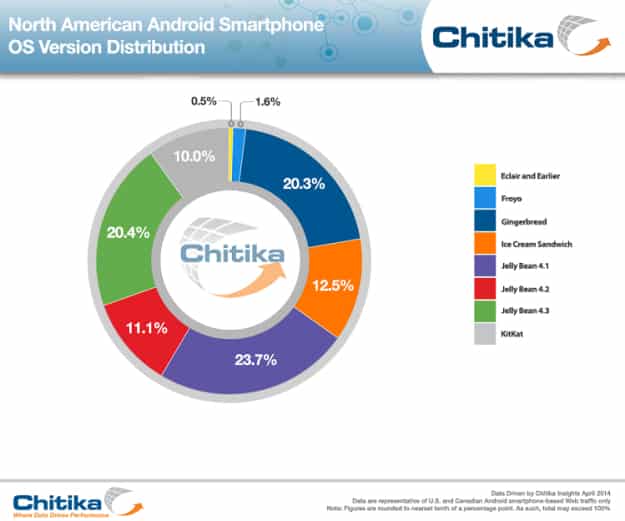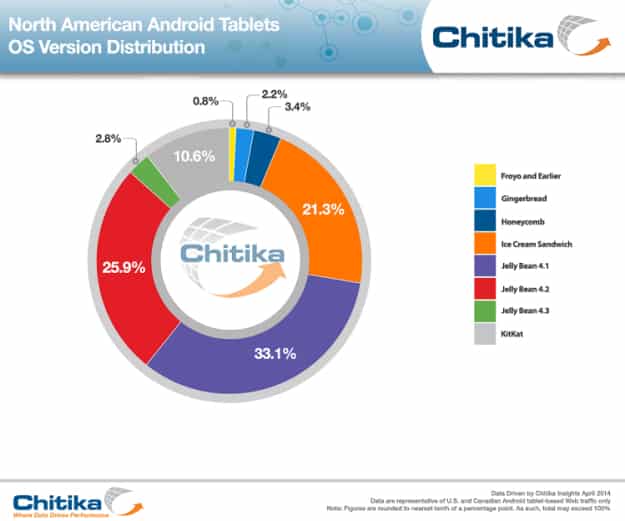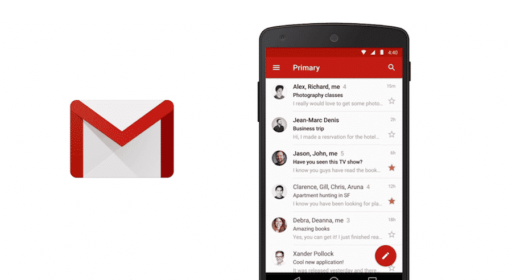Google rolled out the latest version of Android, branded ‘KitKat‘, six months ago. To date, only 10% Android devices run this version. Such sluggish adoption rate is even slower than the adoption rate of Android Jelly Bean.
Jelly Bean was already on 14% Android devices within six months of its release. With KitKat, Google had aimed to ramp up the adoption rate and bring the latest version to a greater number of devices, sooner. But that strategy doesn’t seem to be working so far.
According to a report by Chitika, “Looking beyond the device type breakdown, on a wider scale, KitKat has not progressed quite as quickly as Jelly Bean in North America from an adoption perspective. We previously observed Jelly Bean users generating 13.6% of North American Android Web traffic approximately 24 weeks following its debut on the Nexus 7. This overall number is 10.1% for KitKat as of this study, close to 22 weeks following its release on the Nexus 5.”
Chitika’s analysis is limited to the adoption of recent Android versions in North America. But the data also reflects on the overall adoption of KitKat as well as probably the sales of Nexus 5. A broader view of the Android world further divulges that the platform continues to be fragmented between different Android versions.
Jelly Bean, for instance, continues to run on 55.2% of Android smartphones in North America while Gingerbread still has a 20.3% market share. One of the key problems with the Android market is that vendors such as Samsung and HTC pull the plug on older handsets too soon. Even if a handset is capable of running a new Android version, hardware vendors tend to limit it to older Android versions. This is merely an attempt by these companies to ramp up the sales of newer, more expensive models. In the long-run, though, it only harms Android’s growth and adoption rate of newer versions.
You can read the complete report by Chitika here.
Source: Chitika
[ttjad keyword=”android-device”]






it couldn’t possibly be the EFed up BlueTooh stack?
Or the narrow gate for hardware approval?
How will brands who prefer to fudge issues with proprietary software ever pass such hurdles to sell shoddy un-modable hardware to a less lemming audience that ios consumers?
unlocked bootloads will sell more phones